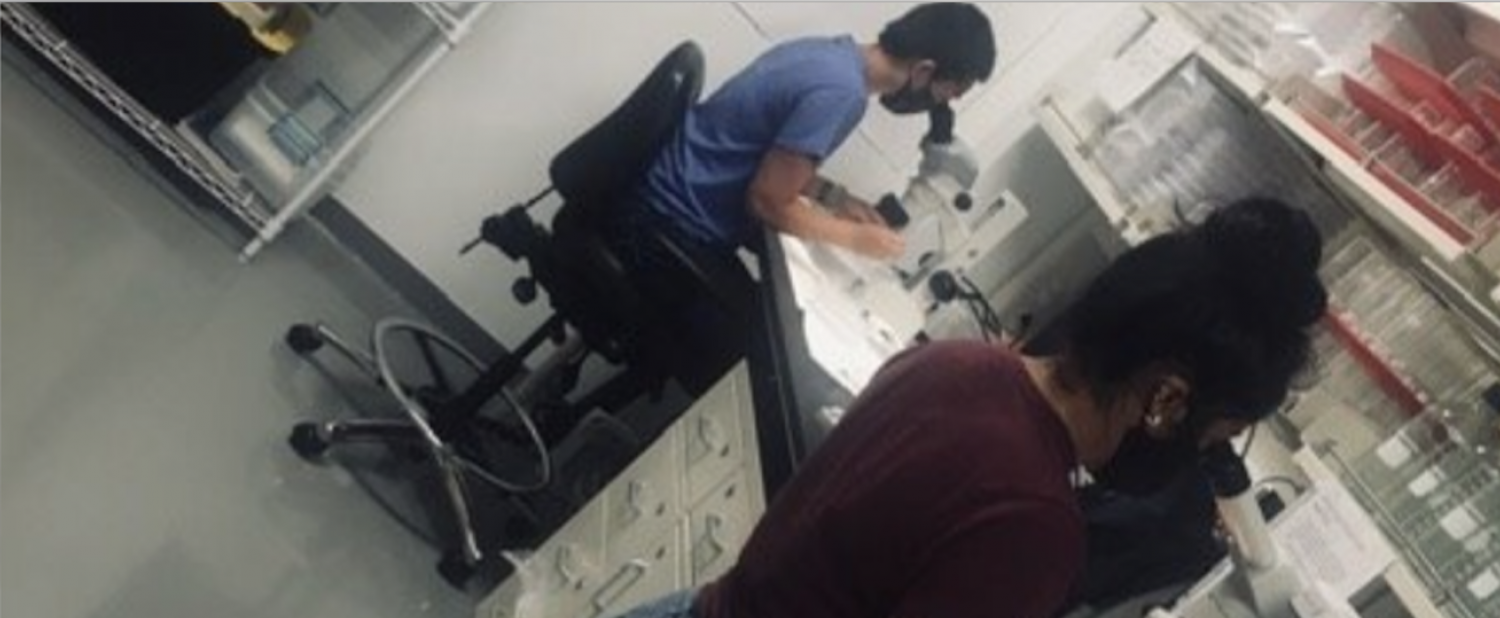“Neonics.” It’s a cute-sounding nickname for chemicals that are anything but adorable. Neonicotinoids have been used in commercial agriculture for more than two decades as potent insecticides. As their use has spread, so have some unintended consequences.
“The pesticides are supposed to target insects, and cause their muscles not to work properly,” says Tisha King-Heiden, a reproductive physiologist and toxicologist at UW-La Crosse. “Our bees, which are non-target organisms, are being impacted.”
While media attention has often focused on the harm neonics can do to honeybees and other pollinators, the problem doesn’t end there.
“Everyone kind of focused on bees, but these pesticides are pretty water-soluble,” King-Heiden says. “They get sprayed on seeds, and end up in runoff, and they’ve been found in drinking water, and in our streams.”
With support from the Freshwater Collaborative of Wisconsin, King-Heiden, her students, and colleagues at UW-Whitewater and the U.S. Fish and Wildlife Service are investigating whether two widely used neonics may be causing subtle behavioral changes in fish.
Such altered behavior can have significant impact. For example, an affected fish may move more slowly, and be unable to evade a predator. Over time, these changes can destabilize entire food webs.
The project is new territory for King-Heiden, who usually looks at how environmental contaminants influence the development of an organism’s reproductive system. However, in the same spirit of silo-busting that created the Freshwater Collaborative of Wisconsin, King-Heiden and environmental toxicologist Elisabeth Harrahy of UW-Whitewater decided to pursue the neonics project together.
Says King-Heiden: “We’ve never collaborated before. We started talking about it and I said, ‘let’s go for it.’”
The research also provides a valuable hands-on learning opportunity for both graduate and undergraduate students.
While the project is still in the early stages, there are already echoes of an earlier, now infamous pesticide.
“This work is kind of mirroring the story of DDT,” says King-Heiden. “We developed the pesticides, they’re widely used, and now we’re finding unintended consequences.”
She adds: “Those non-target effects have a big impact on the environment, including the decimation of entire small ecosystems. Humans sometimes forget we’re part of the environment. And the ecosystem is part of our economy, too.”

